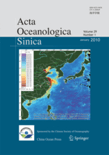
ACTA OCEANOLOGICA SINICA
Scope & Guideline
Navigating the Frontiers of Ocean Research
Introduction
Aims and Scopes
- Marine Biogeochemistry:
Research on the chemical, biological, and physical processes in marine environments, including nutrient cycling, organic matter dynamics, and the impacts of anthropogenic activities. - Ocean Dynamics and Modeling:
Studies involving numerical simulations and modeling of ocean currents, waves, and thermal structures, often utilizing advanced computational techniques to predict ocean behavior. - Marine Ecology and Biodiversity:
Investigations into marine ecosystems, species interactions, and the effects of environmental changes on biodiversity, with a focus on habitat conservation and management. - Coastal and Estuarine Research:
Research dedicated to understanding coastal processes, sediment dynamics, and the impact of human activities on estuarine environments, including the effects of pollution and habitat degradation. - Climate Change Impacts on Oceans:
Exploration of how climate change affects ocean systems, including sea level rise, ocean acidification, and shifts in marine species distribution. - Remote Sensing and Ocean Observation:
Application of remote sensing technologies and observational data to study oceanographic phenomena, enhancing understanding of large-scale ocean dynamics. - Fisheries and Aquaculture Studies:
Research focused on sustainable fisheries management, aquaculture practices, and the ecological impacts of fishing activities.
Trending and Emerging
- Climate Change Adaptation and Mitigation:
Research focusing on understanding how marine ecosystems adapt to climate change, including studies on resilience and mitigation strategies for vulnerable species and habitats. - Artificial Intelligence and Machine Learning in Ocean Research:
The integration of AI and machine learning techniques for data analysis and predictive modeling in oceanography is rapidly gaining traction, allowing for more sophisticated analyses of complex marine systems. - Marine Pollution and Ecosystem Health:
Increasing emphasis on the impacts of various pollutants, including plastics and heavy metals, on marine ecosystems and human health, reflecting growing public concern over environmental sustainability. - Ocean Renewable Energy:
Investigation into renewable energy sources from marine environments, such as wave and tidal energy, is a growing area of research as the world seeks sustainable energy solutions. - Biodiversity and Conservation Technologies:
Emerging studies focused on biodiversity assessment and conservation strategies utilizing modern technologies, such as environmental DNA (eDNA) analysis, to enhance species monitoring and habitat protection. - Integrated Coastal Zone Management:
A trend towards holistic approaches to managing coastal resources, integrating environmental, social, and economic factors into policy development and implementation.
Declining or Waning
- Geological and Geophysical Studies:
There has been a noticeable reduction in research focused specifically on geological formations and geophysical characteristics of marine areas, possibly due to the shift towards more ecological and climate-related studies. - Traditional Marine Chemistry:
Research on basic marine chemistry, particularly studies that do not incorporate advanced methodologies or technologies, appears to be declining as newer, more integrated approaches gain prominence. - Historical Marine Studies:
The focus on historical analyses of marine conditions or species has diminished, as contemporary issues such as climate change and real-time ecological impacts take precedence. - Invasive Species Research:
Although still relevant, the frequency of studies specifically targeting invasive species and their impacts on local ecosystems seems to be decreasing, likely overshadowed by broader ecological and conservation topics. - Physical Oceanography:
There seems to be a waning focus on purely physical oceanography topics, as interdisciplinary studies integrating physical, chemical, and biological aspects are becoming more favored.
Similar Journals
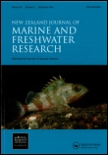
NEW ZEALAND JOURNAL OF MARINE AND FRESHWATER RESEARCH
Diving Deep into the Science of Aquatic EnvironmentsNEW ZEALAND JOURNAL OF MARINE AND FRESHWATER RESEARCH, published by Taylor & Francis Ltd, stands as a distinguished platform for the dissemination of innovative research in the realms of aquatic science and ecology. With an ISSN of 0028-8330 and E-ISSN 1175-8805, this journal has been curating significant scientific contributions since its inception in 1967, continuing through to 2024. Recognized in the Q2 category across multiple relevant fields—including Aquatic Science, Ecology, and Water Science—this journal ranks notably in Scopus, with a 74th percentile for Ecology, Evolution, Behavior and Systematics, highlighting its impact and relevance within the scientific community. Though not an open-access publication, its rigorous peer-reviewed articles offer insights that resonate with researchers, professionals, and students who are passionate about advancing our understanding of freshwater and marine ecosystems. By fostering a collaborative space for ecological and environmental inquiries, the NEW ZEALAND JOURNAL OF MARINE AND FRESHWATER RESEARCH is essential for those aiming to contribute to the vital conversations around biodiversity, conservation, and sustainable management of aquatic resources.
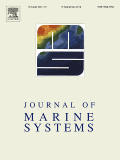
JOURNAL OF MARINE SYSTEMS
Exploring the Depths of Marine KnowledgeJOURNAL OF MARINE SYSTEMS, published by Elsevier, is a leading academic journal dedicated to advancing the understanding of marine systems through interdisciplinary research. With an impressive impact factor and ranking in the Q1 quartile across various categories such as Aquatic Science, Ecology, and Oceanography, this journal has established itself as an invaluable resource for researchers, professionals, and students interested in marine science and its applications. Since its inception in 1990, the journal has been a platform for high-quality studies, offering insights into complex marine ecosystems, their dynamics, and their interactions with human activities. Notably, it is indexed in major databases, which ensures visibility and accessibility for global audiences. Researchers are encouraged to share their findings and contribute to the ongoing dialogue about the health and sustainability of marine environments.

Journal of Ocean University of China
Transforming Ocean Knowledge into Practical SolutionsThe Journal of Ocean University of China, ISSN 1672-5182, is a premier academic journal dedicated to advancing the fields of Ocean Engineering and Oceanography. Published by the esteemed Ocean University of China, the journal serves as a vital platform for researchers, professionals, and students to disseminate groundbreaking findings and foster collaboration in marine science and engineering. With a commitment to quality, the journal currently holds a Q3 ranking in both Ocean Engineering and Oceanography as of 2023, indicating its significant contributions within the scientific community. The journal's scope encompasses a wide range of topics including marine technology, ecological studies, and coastal management, all aimed at enhancing the understanding and utilization of oceanic resources. Although currently not Open Access, it continues to attract submissions from renowned scholars, ensuring a diverse and innovative range of research. By providing access to cutting-edge research and practical insights, the Journal of Ocean University of China plays a critical role in shaping the future of ocean sciences and engineering.

JOURNAL OF OCEANOGRAPHY
Fostering Interdisciplinary Insights in OceanographyJOURNAL OF OCEANOGRAPHY, published by Springer, stands as a leading academic journal in the field, with an impressive Q1 ranking in Oceanography for 2023. Since its inception in 1992, this journal has dedicated itself to the dissemination of high-quality research that spans a diverse array of topics within oceanography and earth sciences. With an ISSN of 0916-8370 and an E-ISSN of 1573-868X, it plays a crucial role in bridging the gap between academia and practical marine applications. The journal is indexed in Scopus, ranking #57 out of 145 in its category, reflecting its rigorous academic standards and the impact of its published works, reaching a notable ile in the 61st percentile. Located in Japan, the JOURNAL OF OCEANOGRAPHY provides a vital platform for sharing significant research findings that contribute to our understanding of marine environments, aiming to foster interdisciplinary collaboration among researchers, professionals, and students dedicated to marine science.

OCEANOLOGICAL AND HYDROBIOLOGICAL STUDIES
Uncovering the mysteries of marine life and habitats.OCEANOLOGICAL AND HYDROBIOLOGICAL STUDIES, published by WALTER DE GRUYTER GMBH, serves as a crucial platform for the dissemination and discussion of pivotal research in the field of oceanography and hydrobiology. With an ISSN of 1730-413X and an E-ISSN of 1897-3191, this journal highlights interdisciplinary studies that address pressing ecological issues impacting marine environments. Although it currently ranks in the Q4 category of oceanography journals and holds a Scopus rank of 96 out of 145, its commitment to publishing high-quality research positions it as a valuable resource for researchers, professionals, and students alike. As it converges into 2024, OCEANOLOGICAL AND HYDROBIOLOGICAL STUDIES remains dedicated to advancing our understanding of aquatic systems, contributing significantly to the scientific community's efforts in ocean conservation and management.
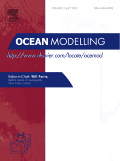
OCEAN MODELLING
Transforming Ocean Research with Cutting-Edge Techniques.OCEAN MODELLING, published by Elsevier Science Ltd, is a leading journal dedicated to advancing the understanding of ocean systems through innovative modeling techniques and interdisciplinary research. With an ISSN of 1463-5003 and E-ISSN 1463-5011, this journal is esteemed within the fields of Atmospheric Science, Computer Science (Miscellaneous), Geotechnical Engineering and Engineering Geology, and Oceanography, as reflected by its impressive quartile rankings in 2023, including Q1 in Oceanography and Q1 in Computer Science. Researchers and professionals benefit from the journal’s high-impact contributions, as indicated by Scopus rankings that place it among the top-tier publications in its categories. Although not an open-access journal, OCEAN MODELLING provides essential insights and methodologies crucial for both academic and practical applications, facilitating knowledge transfer and innovation among marine scientists, engineers, and policy-makers engaged in vital ecological studies and technological advancements regarding our oceans. Join the forefront of marine modeling research by contributing to and exploring the wealth of knowledge presented in OCEAN MODELLING.
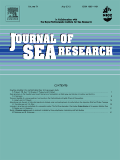
JOURNAL OF SEA RESEARCH
Connecting Science and Sustainability Beneath the WavesJOURNAL OF SEA RESEARCH, published by Elsevier, is a premier academic journal dedicated to advancing knowledge in the fields of aquatic science, ecology, and oceanography. Since its inception in 1996, this journal has provided a vital platform for researchers and professionals to disseminate groundbreaking findings and promote fostering interdisciplinary discussions. With its impressive Q2 ranking in multiple categories, including Aquatic Science and Ecology, Evolution, Behavior and Systematics, it positions itself as a significant contributor to marine and environmental studies. The journal is accessible in both print (ISSN: 1385-1101) and online formats (E-ISSN: 1873-1414), ensuring wide reach and engagement within the scholarly community. Researchers and students alike will find the journal not only a reliable source of information but also a source of inspiration for future explorations. With a commitment to quality and a broad scope that spans fundamental to applied research, JOURNAL OF SEA RESEARCH remains an indispensable resource for understanding the complexities of marine environments and their relevance to our changing world.
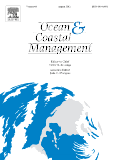
OCEAN & COASTAL MANAGEMENT
Innovating Solutions for Coastal ManagementOCEAN & COASTAL MANAGEMENT is a premier journal dedicated to the multifaceted fields of oceanography, aquatic science, and coastal management. Published by ELSEVIER SCI LTD and located in the United Kingdom, this esteemed journal boasts a remarkable Q1 ranking in prestigious categories, including Aquatic Science and Oceanography, reflecting its influential contributions to the field since its inception in 1992. The journal is recognized for its high impact, boasting a commendable presence in Scopus rankings across related disciplines, with notable placements in the 94th percentile for Aquatic Science and 92nd percentile for Oceanography. Although it operates under a subscription model, OCEAN & COASTAL MANAGEMENT continues to serve as a vital resource for researchers, professionals, and students seeking to advance their understanding of coastal ecosystems and effective management strategies. Through rigorous peer-reviewed research, the journal aims to foster knowledge exchange and practical applications in policy-making and environmental stewardship, making it an essential read for anyone engaged in the preservation and sustainable use of oceanic resources.
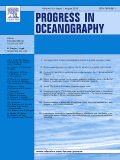
PROGRESS IN OCEANOGRAPHY
Charting New Territories in OceanographyPROGRESS IN OCEANOGRAPHY is a pivotal journal published by PERGAMON-ELSEVIER SCIENCE LTD, dedicated to advancing the field of oceanographic research and exploration. With an ISSN of 0079-6611 and an E-ISSN of 1873-4472, this esteemed publication has been disseminating significant findings from 1963 and continues to be a cornerstone in aquatic sciences and geology, holding a distinguished Q1 ranking in both categories as of 2023. The journal primarily focuses on innovative research that contributes to our understanding of ocean processes, marine ecosystems, and the impact of human activities on the oceans. Its exclusive access model facilitates the dissemination of high-quality content that resonates with researchers, professionals, and students alike, ensuring that vital insights are accessible to the global scientific community. With a firm commitment to upholding rigorous scientific standards, PROGRESS IN OCEANOGRAPHY remains an influential platform for the communication of groundbreaking research, providing scholars with invaluable resources to drive future oceanographic studies.

International Journal of Marine and Coastal Law
Exploring Interdisciplinary Insights for Sustainable Ocean GovernanceThe International Journal of Marine and Coastal Law, published by Martinus Nijhoff Publishers, is a leading academic periodical dedicated to the exploration of legal aspects related to marine and coastal environments. With a strong emphasis on interdisciplinary research, this journal serves as a vital resource for scholars, practitioners, and policymakers engaged in areas such as environmental science, oceanography, and law. Since its inception in 1986, the journal has continuously evolved to address contemporary challenges in the field, boasting a commendable Q2 ranking in Law and Q3 rankings across various relevant categories. The journal facilitates rigorous discourse on pressing issues, providing a platform for high-quality research that aims to inform legal frameworks and enhance sustainable practices. Although it does not offer open access, the journal’s impact extends to its notable Scopus rankings and its essential role in shaping legal discourse on marine and coastal management. Researchers and professionals will find invaluable insights and scholarly contributions that are crucial for advancing knowledge and policy in this critical area of study.